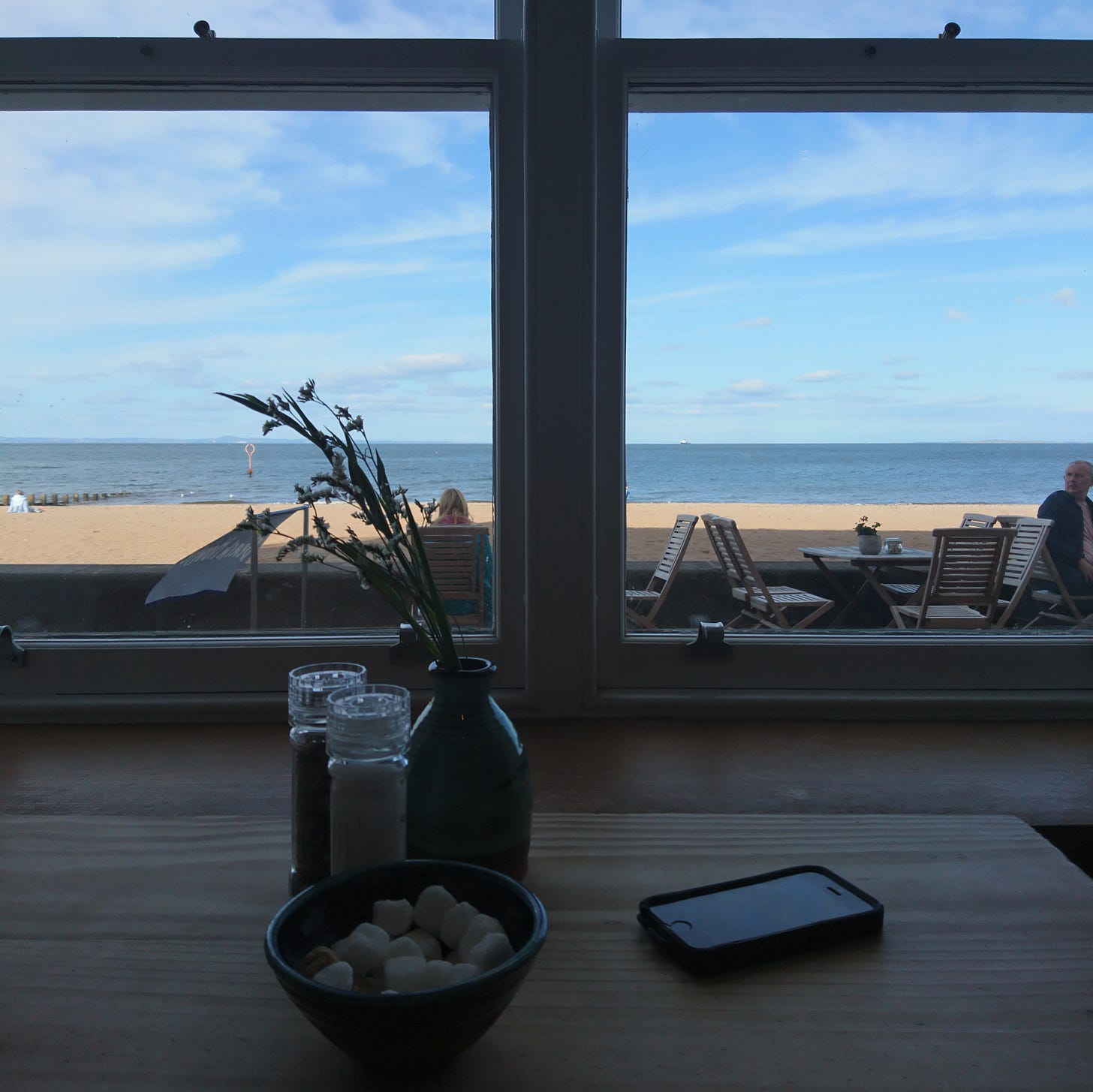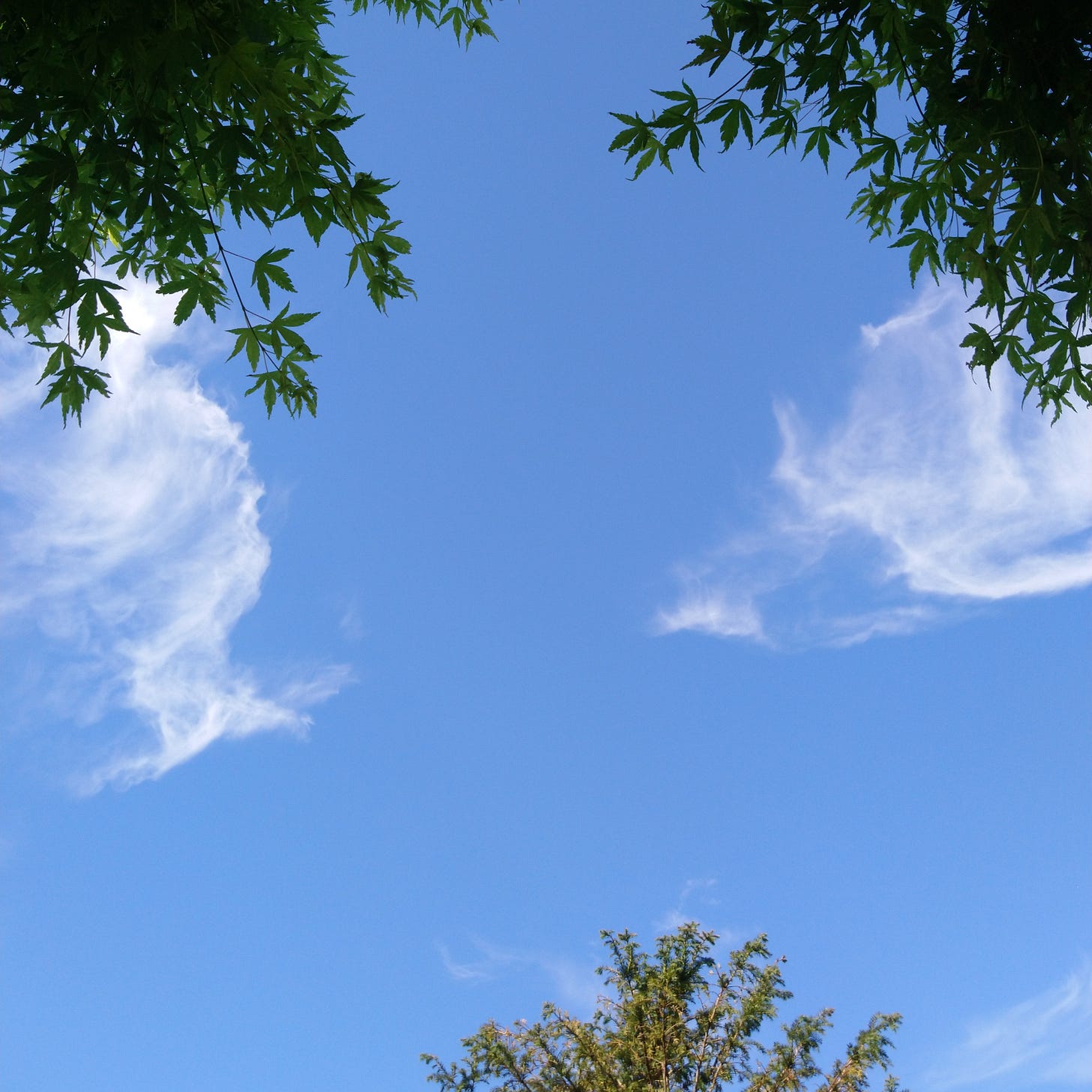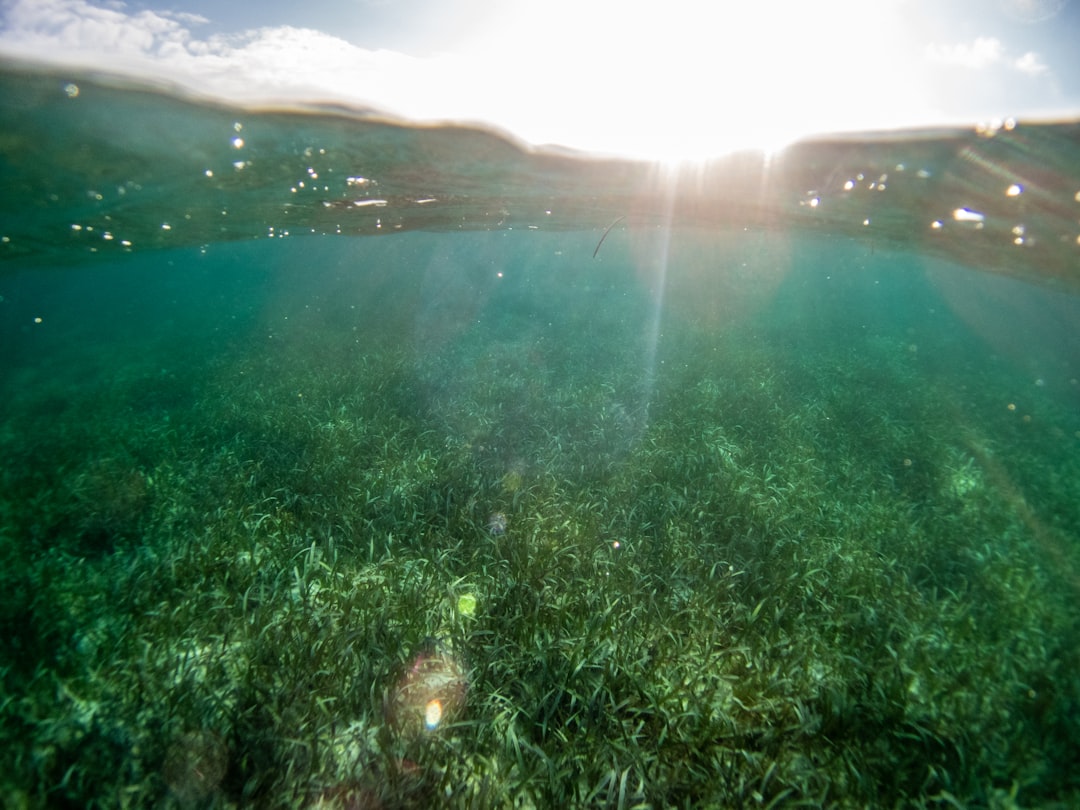Screen allure and seagrass
internet anxieties, successful rewilding, and a reading recommendation
The shiny, tiny screen
Hunting for cultural enrichment, I scroll the website. Everything is acid neon pink. The fashion conscious are having a Barbiecore slash ironic nineties slash ongoing vanilla punk moment. On the website there are links. There's a podcast. There's an online club. There's a zine. Wait — a zine? Holy of holies, a zine! The option I can read in my own time without a thousand capitalist hellscape pop-up, bright colours, and dancing distractions aimed at draining more of my waking hours into this tiny, shining rectangle.
I’ve lost noticeable long-distance vision since 2020. My optometrist told me it's a trend. Everyone's with a phone's doing it. When I asked if it might be possible to reverse, she simply handed me the bill with a pitying chuckle.
With relief, I click on "zine." I like zines. They're fun, quirky, often satisfyingly weird (like this one), and they're not usually owned by dynastic millionaire. Zines are made by people who care about craftsmanship and art. God, how I want to be around people who care about craftsmanship and art. I'll bet that takes time and practice. I'll bet they don't even look at the internet for days.
Another page opens. No zines are available. Would I like to join the online club instead?
I give up. I've already pointlessly followed the podcast. Since I don't commute or cook time-consuming meals (at least not of the type requiring prolonged standing), I don't often listen to podcasts. Theoretically, I could listen while walking, but mine isn't a neighbourhood that rewards a lack of vigilance, so I generally don't do that either. Online clubs would feel like homework or some sort of spiralling parasocial distraction very quickly.
“And why should we go hunting for a substitute for youthful desires, when youthful desires never fail? A substitute for distractions, when we go on enjoying all the old fooleries to the very last? What need have we of repose when our minds and bodies continue to delight in activity? of consolation, when we have soma? of something immovable, when there is the social order?”
― Aldous Huxley, Brave New World
Reading online, I often find myself leaping from someone else's thought to the next; it feels as if I never have time to sit and think my own. What do I really consider important about this new political development, or book, or event, or art piece? Do I need to read reviews? Commentary? A number of sources for balance? Do I want someone else’s thoughts leading me down a certain path when I might've otherwise chosen another? What should I be outraged about? What should I applaud? Who should I join in the stoning of this week? What is important?
What do I need to know?
My concerns about being online too often are the same as most people’s, I suspect. First, I don’t want to be damaging my capacity for measured, rational thought too significantly by leaping from one shallow topic pool to the next, barely getting my feet wet. After all, our recent ancestors didn’t have to deal with this constant bombardment of information — at least not those immediately involved in a war or revolution. The written word was consumed far more sparingly. Books were frequently re-read and examined, both mentally and socially, in greater depth. Bellamy Clubs are a wonderful example of this, incidentally. I suspect that our limbic systems aren’t set up to be so constantly engaged with so many things; a little rodenty-frog remnant hopping several steps behind each of us and squealing pathetically.
The second concern is that feeling overwhelmed might lead to apathy. That Naomi Shulman quote (you know the one) is making the rounds on Twitter again this week due to another US book banning. Given our uncomfortable era of change, apathy is a legitimate concern. Can we really keep up with and, more importantly, care about so many things at once? In all the noise, can we hear who cares for us? Do we even have time to take care of ourselves?
How do you keep the balance?
The green note: Scotland rewilds the ocean
The purpose and ethos of rewilding is to restore and protect ecosystems, reinstating their natural processes and resilience. In other words, to strategically introduce the ingredients, then stand back and let the stew cook itself.
Seawilding is a community-led rewilding programme near Argyll, Scotland which aims to restore native oysters and seagrass to Loch Craignish. Seagrass captures carbon as well as providing a habitat that, in many cases, is as biodiverse as coral reefs. Oysters are natural filters, cleaning the water, which in turn promotes plant growth, fish spawning, and environmental stability.
The primary threat to seagrass is human activity; physically disturbing the ocean bed through trawling; changing the environment via silt and run-off from sea- or riverside developments; increased water turbidity from motorboats, and so on. Climate change also has an impact. 95% of Britain's seagrass meadows have disappeared. The team at Seawilding, among other projects across the UK, is changing that.
The community collected around 120,000 seagrass seeds, which they then processed in tanks and planted in Loch Craignish using hessian bags. The bags help to give the seeds purchase while germinating as well as preventing hungry crabs from treating the seeds as a deliciously convenient feast.
So far, the project has been a satisfying success; restored seagrass has sprouted and grown. The charity has also reintroduced native oysters to the sea loch — over 300,000 of them. The aim is to reintroduce a million over a five-year period. If it's hard to get excited by seagrass and molluscs, try picturing this: even more seals and otters in the newly-clean, biodiverse waters. Rare voles at the water's edge. More fish spawning for the increasing, extant population of ospreys and rare sea eagles. A local boom in eco-tourism and a population with new skills. Proof that a community can make real environmental change for the better, and a sharing of their data and techniques to similar projects worldwide.
More on the scheme here and on eight rewilding projects around Britain here.
Reading recommendation
Carrying on the marine theme, this fortnight’s reading recommendation is a whimsical short story by Ben Loory which you can read for free online here: https://airlightmagazine.org/airlight/issue-6/the-ship-on-the-horizon/
See you in a fortnight with reviews of weird fiction, recommendations for peculiar films and music, and perhaps a little bonus folklore for good measure.





With apologies, typo corrections;
*dynastic millionaireS
*not those NOT immediately involved in war or revolution